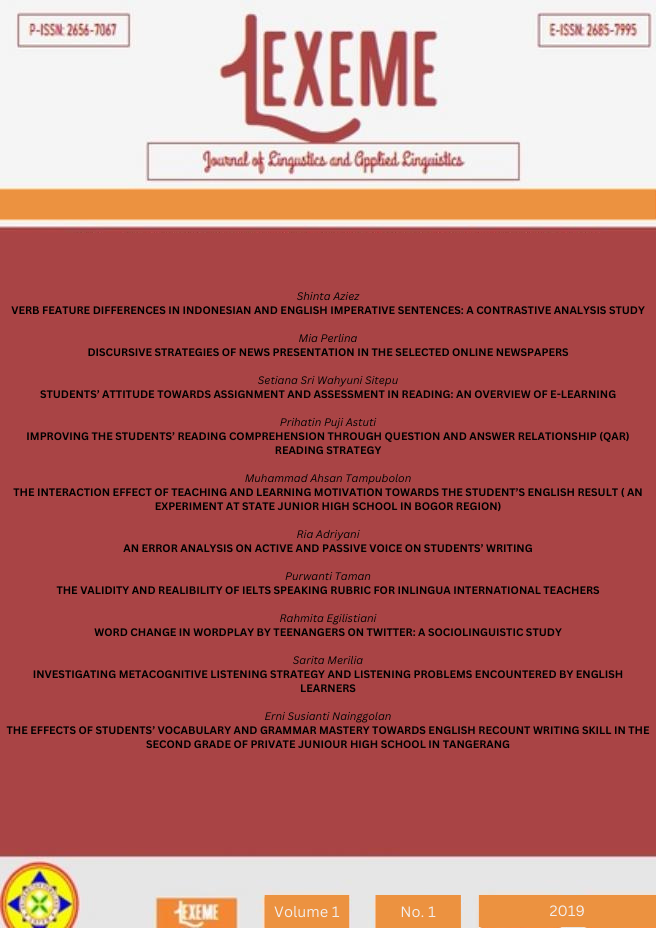VERB FEATURE DIFFERENCES IN INDONESIAN AND ENGLISH IMPERATIVE SENTENCES: A CONTRASTIVE ANALYSIS STUDY
DOI:
https://doi.org/10.32493/ljlal.v1i1.2477Abstract
Abstract
This study contrasted verb features that exist in Indonesian and English imperative sentences. The contrastive analysis is used to make the second language or foreign language learners understand more easily on the target language being learnt. In this case, the study tried to contrast Indonesian language as L1 and English as L2. The data that were used in this study were taken from two sources; Indonesian and English Grammar. The grammar was sorted specifically only on imperative sentences that were collected through attentive observation method and is continued by notetaking technique. Hence, some imperative sentences that were collected were then be analyzed by comparing language units with determining tools in form of comparative relationship between all determining elements that are relevant with all the determined language units. The result revealed that there were some similarities and differences in the verb features of Indonesian and English imperative sentences. Both Indonesian and English mostly use base verb to form imperative sentences, in some cases, they also use suffixes. Also, they attach marker words to form negative and to soften the imperative sentence. On the contrary, some contrasts were found in the existence of passive form, the use of suffixes, the distribution of some markers, the use of auxiliary verbs, and the existence of inversion form.
Keywords: Contrastive Study, English, Imperative sentences, Indonesian, Verb Features







